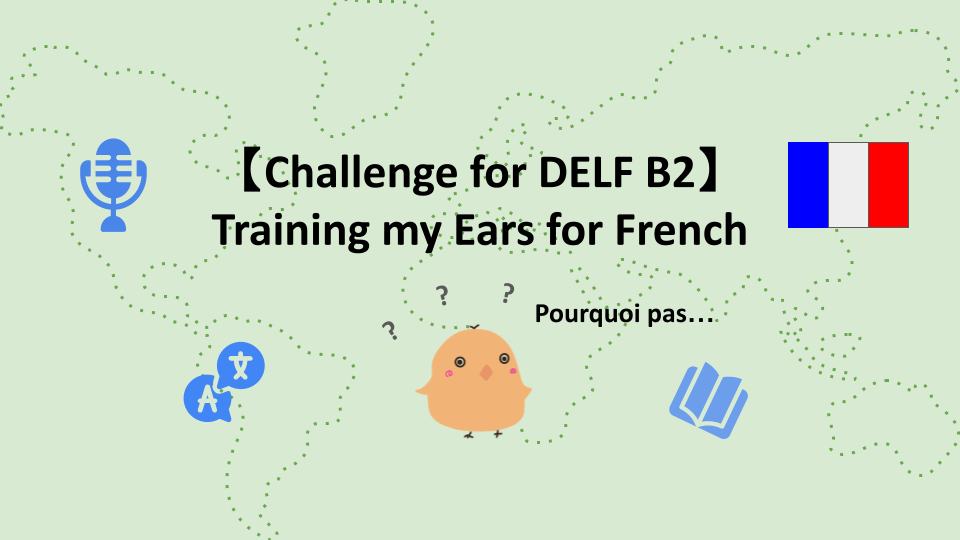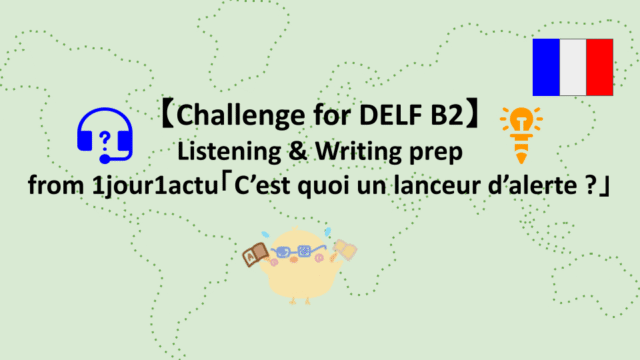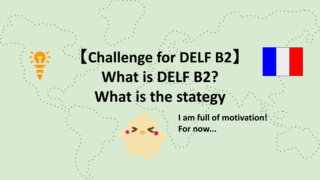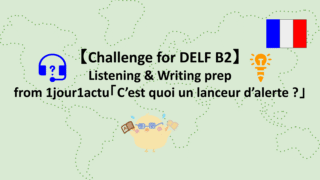French Listening Is My Weakest Skill: Here’s Why and What I’m Doing About It for DELF B2

This post is 850 words, 4 minutes read time.
I’m currently preparing for the DELF B2 exam—and my weakest skill by far is listening.
Every time I listen to a French podcast or news clip, I feel completely lost. I can’t pick out individual words, let alone full sentences. The sounds blur together, and my brain seems to shut off halfway through. It’s not just difficult—it feels like a wall I can’t climb.
In this post, I want to dig into why that happens, and what I plan to do to finally make progress.
- Understand why listening feels so hard—even after months of study
- Recognize common barriers specific to French pronunciation and speed
- Reflect on what doesn’t work (and why)
- Learn the active strategies I’m planning to implement
- See how speaking out loud—yes, like muscle training—can help your ears too
- The Real Reasons I Struggle with Listening
- What I Used to Do (That Didn’t Work)
- My New Listening Plan (Like Muscle Training)
- What I Hope to Achieve
1. The Real Reasons I Struggle with Listening
After some honest reflection, I realized that my problem isn’t just “not enough practice.” It’s deeper than that. Here’s what I think is really going on:
- Sound blending and reduction in French makes it hard to know where one word ends and another begins.
- Even if I know the word on paper, I often don’t recognize it by ear.
- My vocabulary is still limited, so even when I do hear something, I can’t always understand it.
- I can’t process meaning fast enough in real time. By the time I try to translate something, the next sentence is already gone.
- When I get overwhelmed, I lose focus completely.
In short: listening isn’t just passive—it requires a completely different kind of attention and training.
2. What I Used to Do (That Didn’t Work)
For a long time, I thought that listening to more French audio—while walking, cooking, etc.—would magically improve my skills. I followed podcasts, left YouTube videos playing in the background, and hoped that my brain would “absorb” the language over time.
Spoiler: it didn’t.
I wasn’t improving because I wasn’t actively engaging. I was just letting sounds pass over me. And with French, that doesn’t work.
3. My New Listening Plan (Like Muscle Training)
Now, I want to shift to a more active, structured approach to listening—something closer to muscle training than passive exposure.
Here’s what I’m planning to do:
- Choose short, script-supported audio (like 1jour1actu).
- Listen once without reading, just to feel the rhythm.
- Listen again with the transcript, highlighting anything I missed.
- Do a short dictation (write down 1–3 key sentences).
- Say the sentences aloud—yes, move my mouth. I believe that just like in fitness, training the muscles (in this case, the speaking muscles) makes a difference.
- Reuse new vocabulary in short journal entries or blog posts.
It’s not glamorous. But it’s grounded, and most importantly, repeatable.
4. What I Hope to Achieve
I don’t expect miracles.
But I do hope to:
- Slowly increase the number of words and phrases I can catch
- Feel less overwhelmed when listening to French
- Understand that listening is not a passive skill but a full-body activity (ears, brain, mouth!)
- Reach a level where I can at least follow the DELF B2 listening section with confidence
🎯 I’m preparing for the DELF B2 exam, and listening is my weakest skill.
🤯 French sounds blend together, and I often can’t recognize even words I’ve studied.
❌ I used to think passive listening (like background audio) would help—but it didn’t.
💡 I realized I need active, structured listening:
→ short audio + transcripts + dictation + speaking aloud.
🗣️ Saying the phrases out loud helps like muscle training—my mouth learns the sounds too.
🌱 I’m not aiming for perfection, just steady improvement and more confidence.
You just haven’t found the right training method—yet.











Leave a Reply